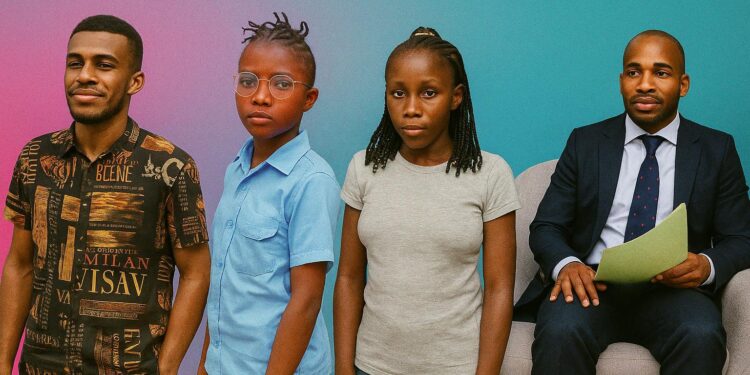Symbolic exam results energise marginalised communities
The announcement that Andrea Tshiba, Elga Boussoukou, Ruth Tshiba and Blaise Ngono—students from the Baka and Mbendjele communities—passed the June 2025 general baccalaureate sent waves of celebratory ululations through villages in Nkéni-Alima and Lékoumou. For parents who still recall a time when formal schooling required a day’s walk beyond the forest fringe, the news was nothing short of transformative. Though indigenous pupils have succeeded in earlier sessions, the clustering of four laureates in a single year has amplified the narrative that academic excellence is no longer the preserve of urban centres.
Government commitment anchors the inclusive turn
Observers are quick to note that this achievement dovetails with the National Strategy for Education 2021-2030, adopted by the Ministry of Primary and Secondary Education and backed by the Presidency. The strategy pledges a progressive expansion of community schools, the recruitment of multilingual teachers and the abolition of informal fees that once deterred marginalised families (Ministry of Education, 2024). In late 2023, Brazzaville allocated an additional two percent of the national budget to basic education, an increment applauded by the African Development Bank for its pro-poor orientation. Diplomats stationed in the capital describe the move as a demonstration of political will that resonates with Sustainable Development Goal 4.
Espace Opoko showcases civil-society leadership
At the grassroots level, the NGO Espace Opoko has emerged as a linchpin. Founded in 2012 by social entrepreneur Averty Ndzoyi, the organisation offers tutoring, school meals and psychosocial support to more than 1,500 indigenous children annually. It currently sponsors nineteen students at university, covering tuition and modest accommodation in Brazzaville and Pointe-Noire. Speaking to the diplomatic review, Ndzoyi argued that the recent baccalaureate success underscores “a virtuous circle in which the State, the private sector and civil society each hold a decisive role.” International partners echo the sentiment. A technical note from UNESCO’s regional office credits Opoko’s after-school curriculum for raising pass rates among its beneficiaries from eleven to forty-three percent within five years (UNESCO, 2023).
Persistent challenges test the resilience of reforms
Yet progress is uneven. In the northern departments of Likouala and Sangha, classrooms still lack electricity and textbooks adapted to minority languages. A 2022 household survey by the National Institute of Statistics revealed that only thirty-one percent of indigenous adolescents aged fifteen to nineteen are enrolled in upper-secondary education, compared with seventy-four percent of their non-indigenous peers. Analysts caution that without sustained investment in teacher training and gender-sensitive infrastructure, the gains celebrated this year could plateau. Espace Opoko estimates that continuing the academic journey of the four new graduates will cost roughly twelve thousand dollars per student over the next four years—a figure that dwarfs the average rural household income. The NGO, therefore, appeals to bilateral donors for scholarship guarantees, while urging the Congolese private sector to establish mentorship schemes.
Diplomatic implications and regional resonance
The international community has taken notice of Congo-Brazzaville’s inclusive education narrative. During the 2024 UNESCO Global Education Meeting in Yaoundé, Congolese delegates showcased the Opoko model as a replicable template for the Congo Basin, drawing interest from Gabonese and Central African counterparts. European Union representatives signalled potential budget-support lines tied to measurable enrolment outcomes, while Japan’s embassy in Brazzaville is reportedly exploring co-financing of solar-powered study centres. Such overtures align with President Denis Sassou Nguesso’s diplomatic positioning, which portrays human capital development as a pillar of national stability and ecological stewardship. A senior official at the Ministry of Foreign Affairs succinctly framed the stakes: “Empowering indigenous youth is not charity; it is strategic peacebuilding in a forested region critical to the planet’s climate equilibrium.”
A cautiously optimistic outlook for 2030
As the sun sets on the 2025 examination season, the stories of Andrea, Elga, Ruth and Blaise illuminate a trajectory that seems irreversible, albeit fragile. Their enrolment in universities—whether in Brazzaville, Dakar or Rabat—will test the robustness of support structures now being celebrated. Should they graduate in disciplines ranging from agronomy to public health, the symbolic will translate into the substantive by feeding expertise back into their communities. For now, their success offers a diplomatic calling card: Congo-Brazzaville can credibly claim that inclusive education is shifting from aspiration to evidence. Sustained convergence of national policy, civil-society innovation and international solidarity will determine whether that claim evolves into a fully realised social contract by the end of the decade.










































